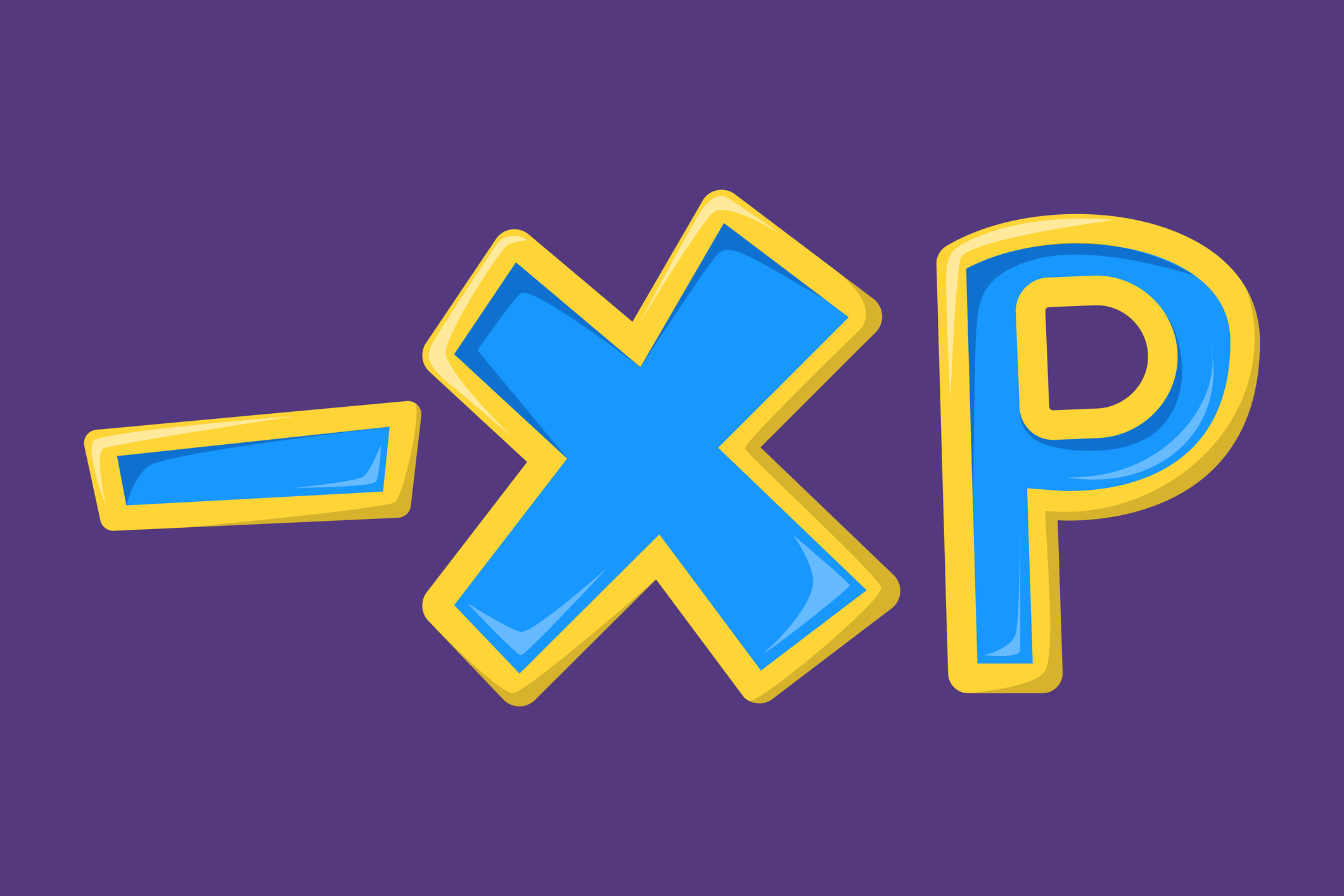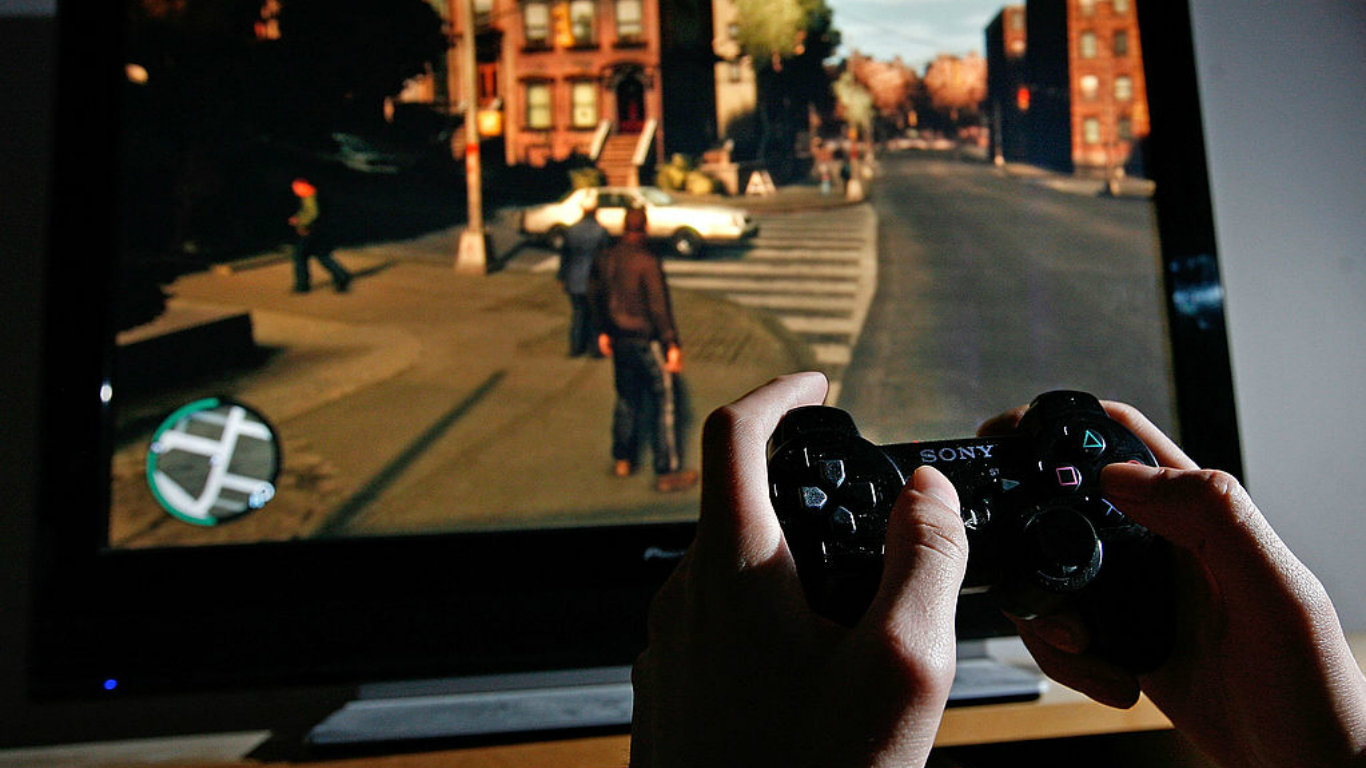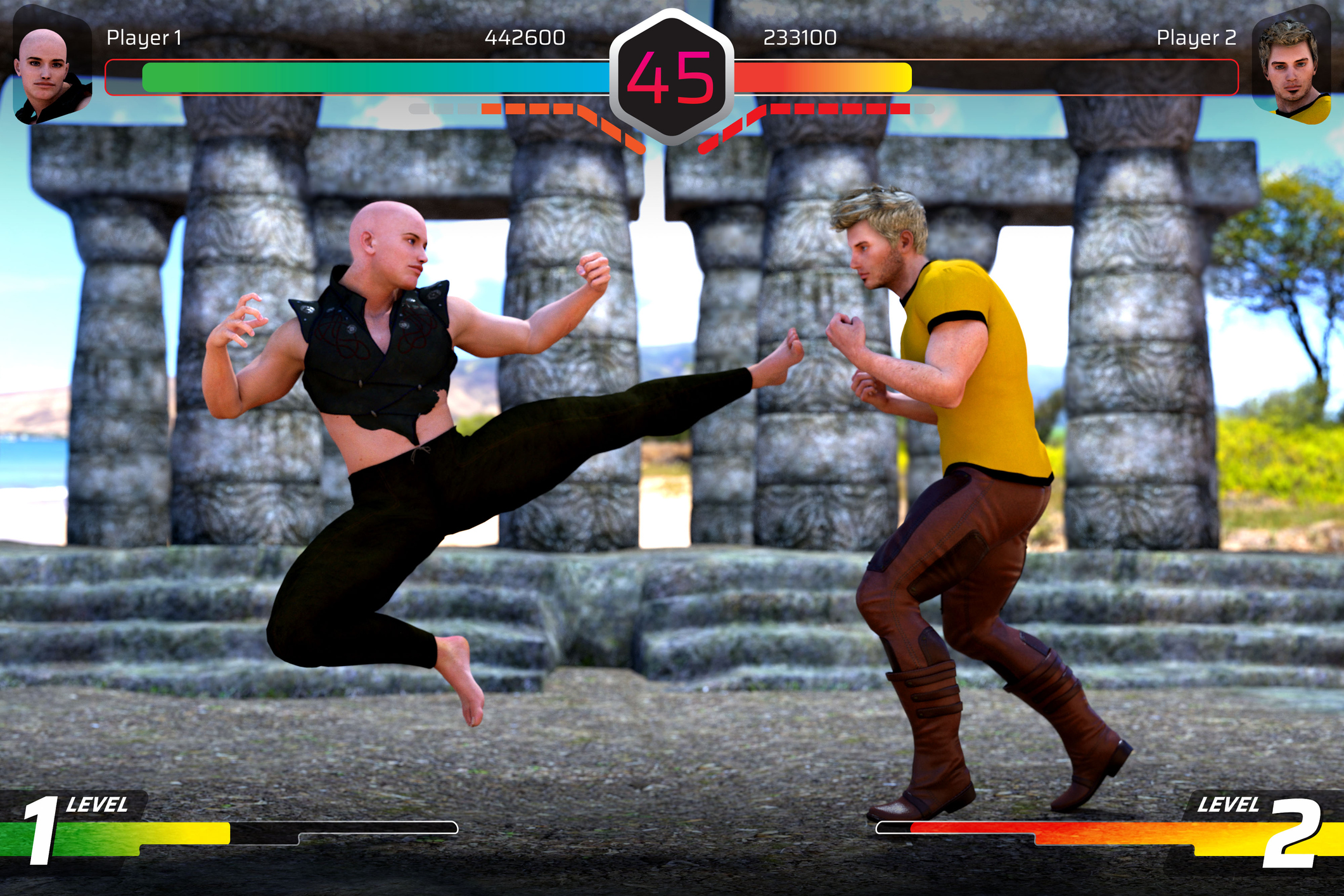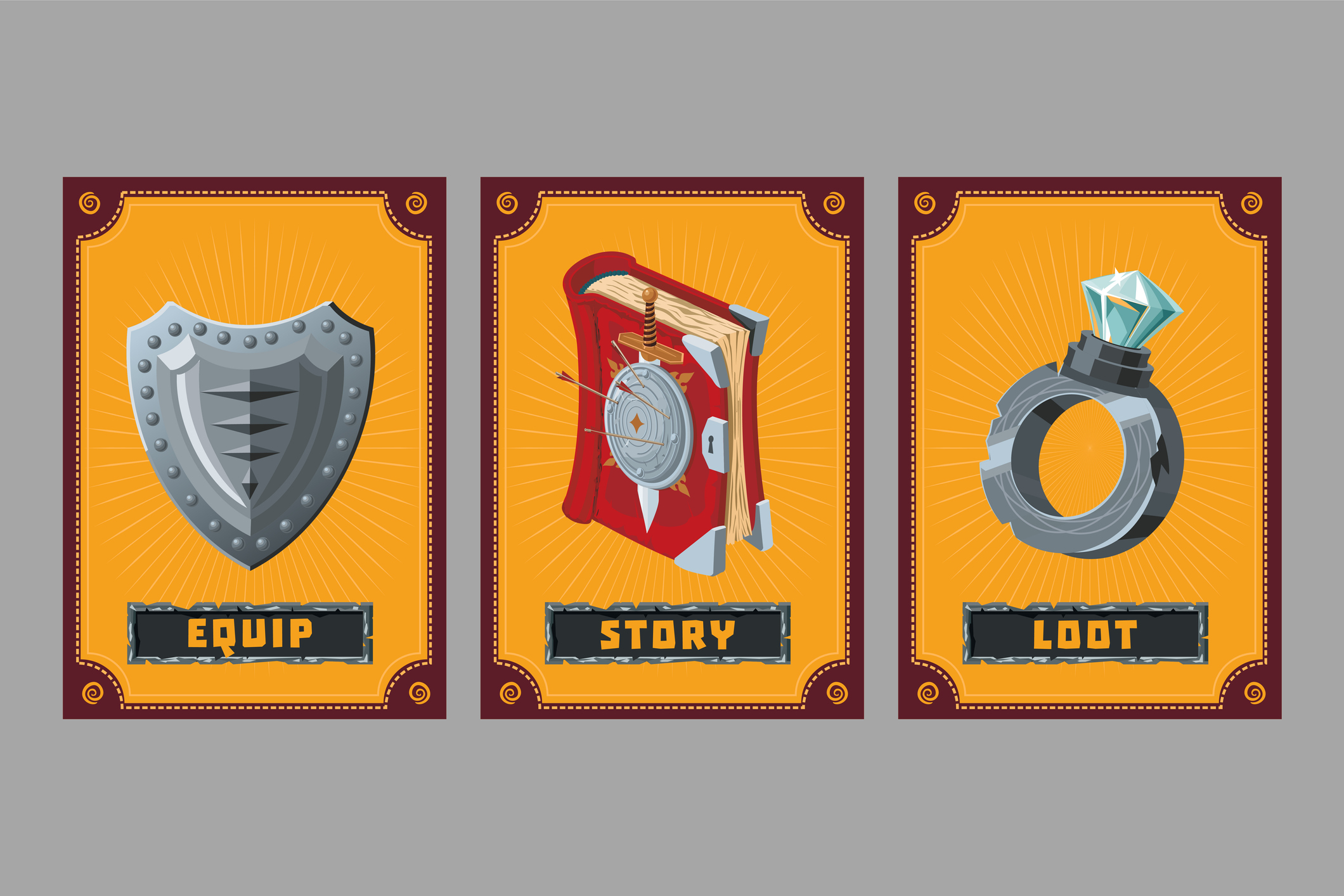Over the years, video games have continued to become more advanced, and so has the vocabulary that goes along with them. While we used to only think in terms of points, pixels, and bits, the gaming world has now evolved to include new gaming terms, like bots, DLC, and XP. But what do they all mean?
Today, we’re going to learn about several terms only gamers understand and why, if you play games, you should know them as well. To curate this list of 13 terms only gamers understand, 24/7 Tempo delved into a variety of sources, including Uswitch and MUO. Moreover, a large portion of our insights come from hands-on real-life gaming experience. (Click here to learn about the most followed video game franchises in the U.S.)
1. Bits
Gamers who played all of the games going back to the Atari age know all about bits and how the evolution of bits has changed gaming throughout the years. The main bits that gamers discuss are 8, 16, 32, and 64 bits.
As a frame of reference, the original Nintendo Entertainment System was an 8-bit gaming system. By comparison, the Nintendo 64 was a 64-bit machine. Bits are the number of data elements that a computer can process at one time. It’s also about how much can be on the screen at one time. The more bits, the more advanced the game.
2. AFK
The next of the terms only gamers understand is AFK, which is an acronym for “Away From Keyboard.” Gamers will type that out if they walk away from a computer game to go to the bathroom, get a drink, talk to Mom and Dad, or do whatever else may call their attention. The other gamers will see that and know that they should wait. A more well-known acronym to use would be “BRB.”
A gamer may also type out “AFK” so that his or her friends wouldn’t start a new game without them. If you’re a self-respecting gamer, you should respect the fact that the gamer has left and not mess with them. However, if they take too long, feel free to crack a few jokes.
3. Bots

Robot concept or robot hand chatbot pressing computer keyboard enter
The next video game term to know is bots, which is an enemy or competitor that’s controlled by the computer. This is just like when you chat with a company, and you get a computer responding to you. They’re meant to act like a real person, but they aren’t always too convincing.
You may hear bots and AI in the same thought. In gaming, AI is usually used in simulation games or to control NPCs (non-player characters) in a game.
However, don’t get either of those terms confused with an “avatar,” which is typically an optional profile picture used in a game or on a gaming account.
4. XP

Experience game icon vector isolated. Illustration of blue and golden letters XP. Video game sign, level down, lost experince points.
XP is an abbreviation for “experience point.” It may also be abbreviated as “exp.” Essentially, it’s what you earn when your character grows stronger, smarter, or more experienced, which helps you to progress further through the game. XP will typically be rewarded after beating opponents, completing missions, or overcoming obstacles.
You’ll often see XP in role-playing or open-world games where leveling up is essential for success. While many people think of XP when it comes to video games, it was originally a unit of measurement in some tabletop role-playing games. There’s another kind of point called “MP,” which stands for Magic Points, and they influence the power of magical attacks.
5. Open World

An open-world game is one where you can go anywhere on a given map. You can go your own way and often complete objectives in any order as long as you come to a natural conclusion at the end. In many open-world games, you can’t go into every building, but you can usually go around them. There are many non-player characters in open-world games that you can sometimes interact with. A popular open-world game is Grand Theft Auto.
Think of this as something completely different from a “point-and-click game,” where you’re limited to what you can do and where you can go. Open-world games are growing in popularity, and numerous new games come out every year. As time goes on, this genre will only get more advanced.
6. DLC

The Word DLC Formed By Wooden Blocks On White Table
This is a term we’re starting to hear a lot more often, and it stands for “downloadable content.” This is additional gameplay that comes out after the initial launch of the game. DLC can run the gamut from new character outfits to extra game modes to new levels.
This downloadable content can be free or it can cost extra. It’s a way for the developer to make more money and the gamer to continue their enjoyment of the game. This is different from a patch, which is not optional. Everyone gets it.
7. MMORPG

This is definitely one of the most unique terms only gamers understand. In fact, some actual gamers don’t know it, and it’s MMORPG, which stands for Massively Multiplayer Online RPG. This is a Role-Playing Game where many players are playing at once, often from around the world. It’s played on a server and can be played at any time.
Examples of MMORPGs include World of Warcraft, Final Fantasy XIV, Star Wars: The Old Republic, and Guild Wars 2, among others.
8. Beta
In the gaming world, beta is a state in the life of a game where the developers send it out into the world before it’s finished, sort of like a movie preview. It’s a chance for potential future customers to see how the game looks so they can start to formulate an opinion on what they see. This is far from being a completed game, and there will likely be bugs and gameplay issues, but it’s a chance to show off the graphics, characters, etc.
This is a chance for the developer to get feedback so they can incorporate it into the development. Gamers are usually pretty honest about what they see, so this is an important step in the game’s evolution.
Sometimes there will be a “closed beta,” and that’s when the game is only accessible to a select group of gamers, usually at an event.
9. FPS

This is a bit of a tricky one because gamers may hear the initials FPS for several reasons. Perhaps the most common meaning is for “first-person shooter,” which is a game where you play while looking through the eyes of the character. You don’t see the character on screen other than their arms and a weapon.
The other meaning of FPS is “frames per second,” which is the number of times a game world is stimulated each second. The higher the FPS, the smoother the game will run, and if you want a seamless experience, you’ll want a higher FPS.
10. Combo

Self-design mock-up game screen
No, this is not like at McDonald’s, where gamers mix and match their favorite games in a value pack. Instead, this is a combination of attacks that puts maximum damage on an enemy. You’ll often see this in 1-on-1 fighting games, where a character unleashes a flurry of kicks, punches, and special moves and eliminates half of the competitor’s life meter.
Combos can also occur in team-based games, and it’s when multiple team members launch a coordinated attack on a group of enemies to inflict maximum damage.
11. Lobby

Just like a lobby in the real world, gamers know a lobby as a menu screen that players live in while waiting for the game to start. While there, they can learn information, like results from the last match and a preview of what comes next. This is also a place for gamers to talk amongst themselves. There won’t be a lobby in every game, but it’s like a waiting room for those that do.
12. Camping

In the real world, camping sounds like a nice retreat into the woods as you enjoy a campfire and make some s’mores. However, in gaming, camping has a negative connotation. Basically, when a gamer or character is camping, they’re staying in one place as they attack other players without being seen. It’s essentially giving them an unfair advantage, and the other players won’t like it.
13. Loot

Shield, ring and book. Card game collection. Fantasy ui kit with magic items. User interface design elements with decorative frame. Cartoon vector illustration.
Finally, we have loot, which is another of the terms only gamers understand, and it’s the spoils that a player gets after slaying an enemy. Examples of loot include ammo, money, supplies, and health. Some games will also have loot boxes, which are something you can purchase. They may also contain supplies or items you can’t easily get in the game, like character skins.



